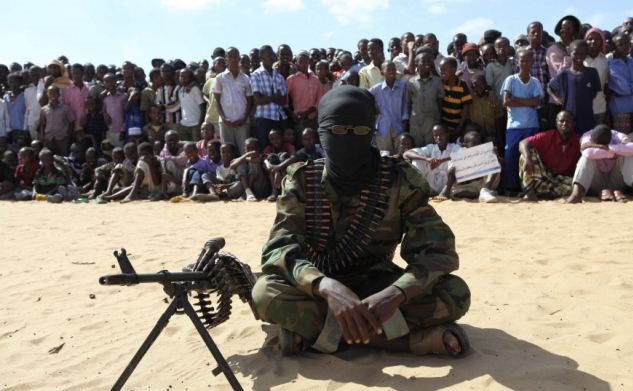Fear and Loathing in Nigeria: The Rise and Return of Boko Haram
BY BRANDON JETTER

In 2014, the kidnapping of 276 female Nigerian students by the Islamic extremist group Boko Haram captured the world’s attention and brought a previously unprecedented amount of media attention to the ongoing situation in Nigeria. Although initial responses were well-documented, including through a viral social media campaign, coverage of the conflict gradually digressed in the following months. Now, nearly four years later, and despite multiple government declarations of victory over the terror group, Boko Haram has continued to terrorize the Nigerian countryside. In 2017, the month of November in particular, Nigeria saw brutal bombings of mosques, schools, markets, and other large population centers. December, likewise, gave way to a coordinated attack on a Nigerian army convoy accompanying World Food Program trucks, which resulted in the deaths of four people. The resurgence in the frequency of these attacks has led many to begin to examine just how ineffective the Nigerian government has been in resolving its terror problem.
Meanwhile, evidence of the the extremist group’s presence in Nigeria has continued to grow. A brutal attack on the Government Girls Science and Technical School in Dapchi, a village in northeastern Nigeria, merely served to reconfirm growing sentiments that the government of Nigeria has largely failed in its efforts to contain the organization. It was reported that Boko Haram insurgents invaded the school’s compound by way of 12 trucks with mounted machine guns, setting off numerous explosive devices within the school grounds while a number of students retreated on foot. In a series of muddled reports, government officials initially stated that no girls from the school were kidnapped by the militants and that an additional 76 had been freed from temporary abduction. In spite of the promising initial reports, a series of contradicting accounts from local leaders arose in the following days. Local witnesses claimed that they saw a number of female students taken away from the school grounds on trucks and, over the weekend, the Nigerian government confirmed that over 110 girls were still missing.
The confusion surrounding the government’s reaction to the attack, which many have described as largely incompetent in nature, has continued to draw the ire of the Nigerian populace. Despite a successful joint operation by the Nigerian army and Cameroonian troops that led to the release of 1,130 civilians from Boko Haram control earlier this week, reactions to the government’s response to the Jihadist threat has been met with continued frustration - and for good reason. The attack on Dapchi earlier this week was merely another in a long list of largely preventable assaults upon civilian compounds. In particular, it drew comparisons to the aforementioned 2014 kidnappings at the Government Secondary School in Chibok, Nigeria, an attack which drew global media attention and led to a number of prominent social campaigns. Both incidents featured armed militant groups invading an educational compound and the mass kidnapping of civilian students. Additionally, both events were also met with widespread criticism over the largely inept government response to the actions of the terror group.
In the aftermath of the 2014 attack, reporters associated with Amnesty International and the AP discovered that the Nigerian government had ignored a number of major warning signs and failed to act in a manner which could have potentially prevented the attack. A report by Amnesty International found that local authorities had allegedly been warned about the attack hours in advance, but that officials had failed to order military reinforcements or successfully move the girls to safety. The ineptitude had apparently continued at the national level as well. Then-Nigerian president Goodluck Jonathan, seemingly unaware of the extent to which the attack would provoke international reactions, refused to speak on the situation until an entire two weeks after the attack. Furthermore, the Associated Press reported that, in the immediate aftermath of the attack, Jonathan denied offers of swift military assistance from the United States and the U.K.
Consequently, Boko Haram’s attack on the school compound earlier this week, and the largely contradictory reports that immediately accompanied it, reveals that the Nigerian government has essentially failed in securing a victory in its nearly decade-long war with the terror group. Failure to win over the support and confidence of the local population in the battle against Islamic terrorism will merely aggravate the delicate situation in Nigeria, and the continuation of scenarios like this will only reinforce these suspicions. Until the Nigerian government can honestly discuss the true extent of its terrorism problem and provide an acute response to it, the long term prospect of victory remains unlikely.
